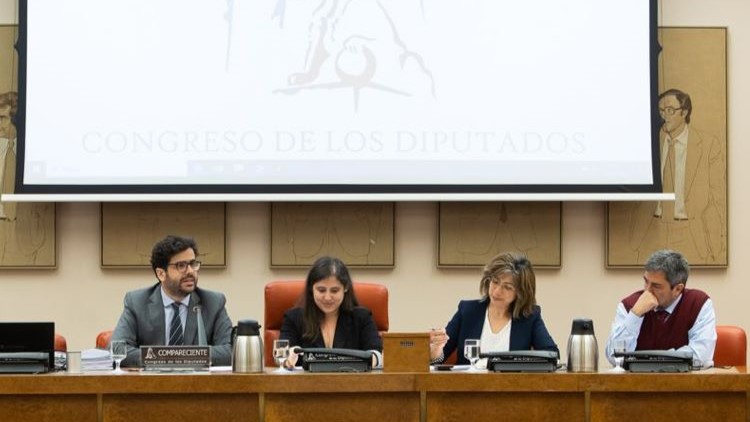The Diplomat
The director of the Agency of International Cooperation for Development (AECID), Antón Leis, assured yesterday before the Congress that the drafts for the new statutes of the Agency and the Cooperant could be ready before next summer. On the other hand, the Council of Ministers yesterday authorized the call for grants to NGDOs, amounting to 45 million euros, for development cooperation projects.
The Ministry of Foreign Affairs is working on the drafting of the new statutes of the AECID and of the Cooperating Persons and on the royal decrees for the creation of the new Spanish Fund for Sustainable Development (FEDES, which will take over from FONPRODE) and for the regulation of aid and subsidies in the field of cooperation for sustainable development and humanitarian action, explained Antón Leis during his appearance before the Congress Cooperation Committee.
The Government’s objective, he continued, is that, “in June, or at the latest at the beginning of July”, the drafts of the royal decrees will be ready, which will allow the public consultation phase to begin and the opinion of the Cooperation Council to be obtained in those cases in which it is necessary. “We want to respect the timetable foreseen in the law,” continued the AECID director.
The new Law on Cooperation for Sustainable Development and Global Security, approved last February with the support of all the parliamentary groups, except Vox, establishes a period of six months for the elaboration of the drafts. The desire of the Government, according to Leis, is to achieve “the same participatory process” as there was in the elaboration of the law, although the subsequent approval of these texts, he admitted, “will be somewhat delayed”.
For the moment, the prior consultation on the FEDES and on the Cooperant Statute has already been completed, with “very good contributions”, whose objective, he explained, is “to consolidate a professional career that is dignified, attractive and motivating for the 6,689 people who represent Spain and the solidarity of our citizens”, because Spanish Cooperation, he added, needs “professionals, well remunerated, experts in their fields”. Likewise, he continued, the Statute of the AECID should incorporate the new functions attributed to it by the new Cooperation Law and pay greater attention to transparency, care for personnel, improved management and increased effectiveness, efficiency and impact in its actions.
Grants for projects
On the other hand, the Council of Ministers yesterday authorized the AECID to call for grants to Non-Governmental Development Organizations (NGDOs) to carry out development cooperation projects for the year 2023 for a maximum amount of 45 million euros. In accordance with the General Law on Subsidies, the granting of subsidies requires the prior authorization of the Council of Ministers when the amount of the expenditure exceeds twelve million euros. The vast majority of these amounts will come from the Other purposes of social interest box of the Personal Income Tax (IRPF).
Under this call for proposals, development projects in a single country aimed at achieving a specific objective will be eligible. The priority countries in which the implementation of projects will be promoted are Bolivia, Cape Verde, Colombia, Cuba, Ecuador, Egypt, El Salvador, Ethiopia, Philippines, Guatemala, Equatorial Guinea, Guinea Bissau, Haiti, Honduras, Jordan, Lebanon, Mali, Morocco, Mauritania, Mozambique, Nicaragua, Niger, Palestinian Territories, Paraguay, Peru, Dominican Republic, Senegal and Tunisia. Dominican Republic, Senegal and Tunisia.
Also subsidized will be projects of education for development and global citizenship, with the aim of promoting a model of global citizenship capable of contributing to the fight against poverty and the promotion of the development of peoples, from a human rights approach, and for the promotion of fair trade.
As announced by Antón Leis himself on March 29, the amount of 45 million for the Ordinary Call for Projects, aimed at NGDOs registered in the AECID Register, is 40% higher than the previous year. Other novelties in this call are the incorporation of Lebanon and Guinea Bissau to the list of 28 target countries and the increase, from 4% in 2022 to 6% in 2023, of the amounts for projects of education for development and global citizenship and for the promotion of fair trade.






